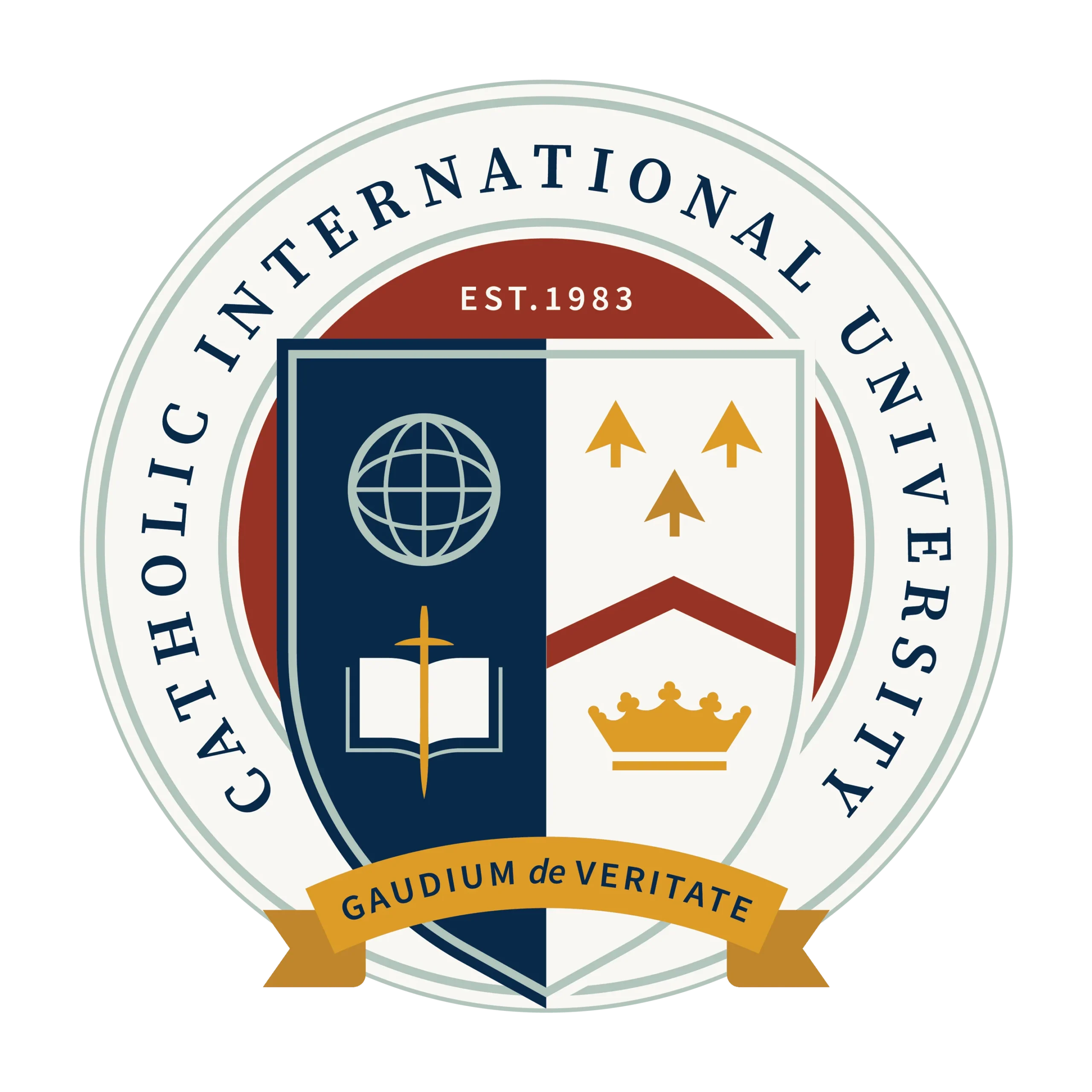The mission of Catholic International University — to use distance education to communicate the mind and heart of the Church in a digital world — cannot be seen merely in terms of academic programs. All aspects of the university, including the online Student Life Center, the community of board, staff, faculty, and students, and the entire online campus, work together to allow each person to “encounter the living God who in Jesus Christ reveals his transforming love and truth” (cf. Spe salvi, 4). Transformed through their encounter with the truth, students are equipped to dialogue with believers and nonbelievers and to be leaven and leaders in Church and non-Church ministries.
Institutional outcomes are regularly assessed using multiple strategies that include both direct and indirect measures of student learning. The assessment program ensures that Catholic International’s degree programs produce their intended outcomes and are educationally effective. While Catholic International itself does not actively place students in ministry, a high percentage of alumni are currently serving in ministry roles.
The 2024 graduation rates are based on cohorts who completed their programs within 150% of the program duration. Catholic International’s graduation rates were 64% for the AA program, 71% for the BA program, 40% for the MA in Theology, and 80% for the MA in Theology and Educational Ministry program.
Graduating MA in Theology students had an average GPA of 3.93 and average completion time of 2.2 years. Graduating MA in Theology and Educational Ministry had an average GPA of 3.88 and average completion time of 3.6 years. For 2024–2025, students met or exceeded expectations in all program outcomes. Among 2024–2025 MA graduates, 75% reported working or volunteering in ministry or related fields. Retention rates for 2024–2025 were 94% for the MA in Theology and 97% for the MA in Theology and Educational Ministry.
Graduating students in the BA in Theology program in the current reporting cohort fulfilled program requirements with an average GPA of 3.58 in an average time of 2.4 years. Most students who enroll in the program are either seeking a Church-related ministry or desire to study the Faith more deeply so that in the future they can participate in volunteer ministries in their parishes. Among 2024–2025 BA alumni, 71% reported working or volunteering in an occupation or ministry related to their degree upon graduation. For the 2024–2025 academic terms, student achievement in each BA program outcome confirms that students met the expectations for each outcome. The retention rate for the 2024–2025 academic year was 93% for the BA degree program.
Graduating students in the AA degree program in the current reporting cohort fulfilled program requirements with an average GPA of 3.53 in an average time of 2.1 years. Among 2024-2025 AA alumni, upon graduation 100% reported working or volunteering in an occupation or ministry related to their degree. For the 2024–2025 terms, student achievement of each AA program outcome confirms that students successfully met the expectations for each outcome. The retention rate for the 2024-2025 academic year was 73% for the AA degree program.
End of program surveys in the 2024-2025 academic year show 100% stating that they achieved their program goals and were satisfied with their studies at Catholic International. Additionally, 96% stated they would recommend Catholic International to others. These data confirm the value of Catholic International services and educational offerings.
As of Fall 2025, the number of active students has increased by 17% compared with Fall 2024. Beyond the numbers, outcomes must ultimately be measured in the way that alumni use their gifts and talents in service to the Church — whether that be formally or informally. Perhaps the most significant effectiveness statement is that Catholic International has been an accredited distance education institution for more than 40 years, being the first to offer online Catholic education in the United States, and is committed to this service for the Church and the world for years to come. (Revised 11-17-25)








